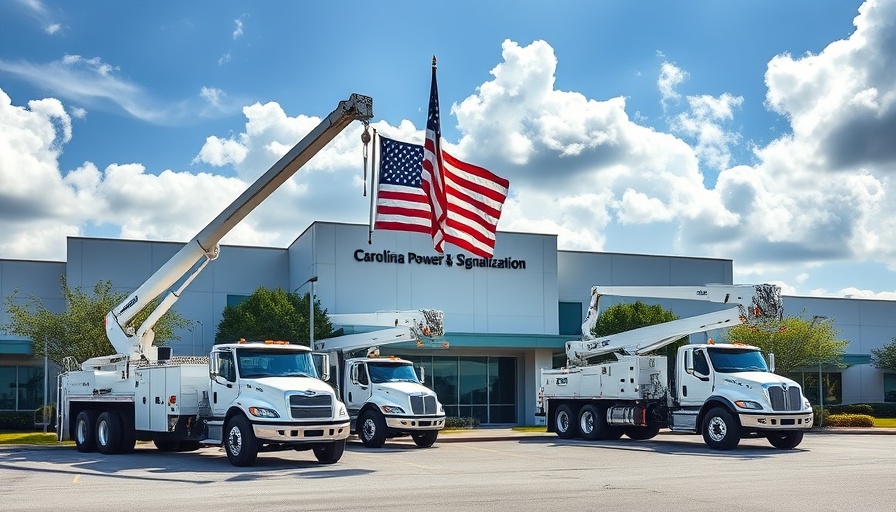
A Tragic Incident in Eden: Remembering Lives Lost
On April 24 in Eden, North Carolina, a tragic accident resulted in the deaths of four powerline workers and injured three additional individuals when a city-owned dump truck crashed at an intersection. With power restoration essential to community safety and infrastructure, this incident underscores the dangers faced by those in the construction and utility sectors.
The Incident: What Happened?
According to reports from the North Carolina Highway Patrol, at approximately 1:30 p.m. that fateful day, a dump truck failed to stop at intersection signals, colliding with a bucket truck occupied by a worker and subsequently crashing into a group of six workers at the intersection of Church Street, Carroll Street, and Park Road. Those killed were professionally dedicated, contributing significantly to community welfare by restoring essential power lines.
Community Reactions: Grieving Together
The powerful emotional toll felt by coworkers and families is profound. Carolina Power & Signalization, an employer of some of the deceased, expressed heartbreak over the loss of their “brothers,” emphasizing that these men were more than just employees; they were integral parts of a family unit. Equally, the company Victory Power Lines, mourning the loss of Douglas Sides—a passionate worker who spent his career serving his community—spoke of his lasting impact and dedication to the craft.
Safety Regulations: The Call for Change
This incident does not occur in isolation; it speaks volumes to the ongoing conversations regarding workplace safety laws in construction, especially for those working on utility lines. In light of this tragic event, the National Transportation Safety Board (NTSB) announced the opening of a safety investigation to explore how regulations might need adjustment to better safeguard workers in the field. The question upon many minds remains: how can we improve the protocols in place to prevent such future tragedies?
Broader Context: The Risks of Utility Work
Utility work often involves high risk. Workers are frequently exposed to dangerous conditions, needing continual training and clear protocols for safe operations. According to the Bureau of Labor Statistics, workers in the utility sector face risks of injury or fatality more frequently than in many other jobs. This accident serves as a stark reminder that we must advocate for better protective measures to ensure workers return home safely.
Looking Ahead: Community Support and Healing
The community's response in the wake of this tragedy also illustrates the human connection inherent in these industries. Many are coming forth to support grieving families who lost loved ones, highlighting the communal spirit vital in such difficult times. Safety must remain at the forefront of conversations surrounding the lives of workers dedicated to serving communities every day.
This unfortunate event serves as a call to action for all stakeholders in construction, utility work, and beyond to closely examine safety protocols and advocate for substantive changes. We owe it to these workers and their families to ensure their sacrifices lead to concrete improvements in workplace safety.
 Add Row
Add Row  Add
Add 




 Add Row
Add Row  Add
Add 

Write A Comment